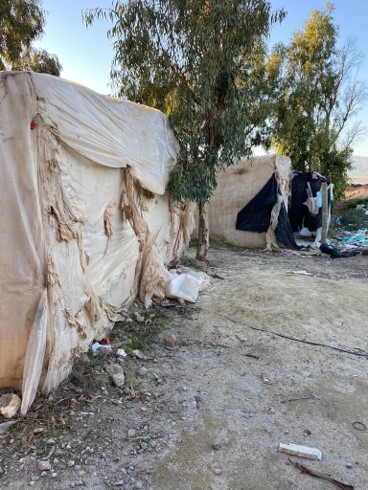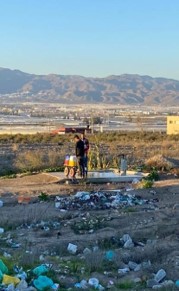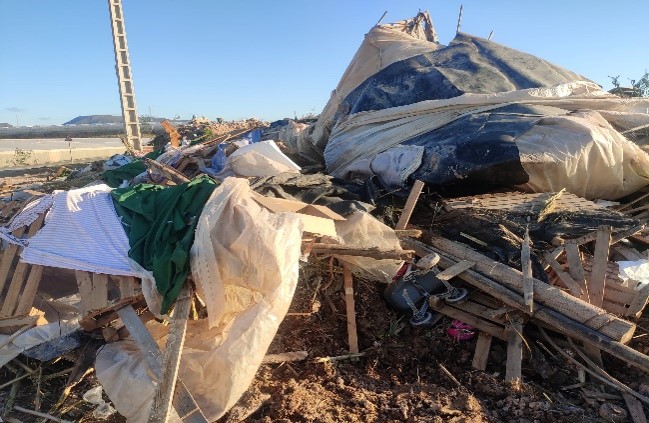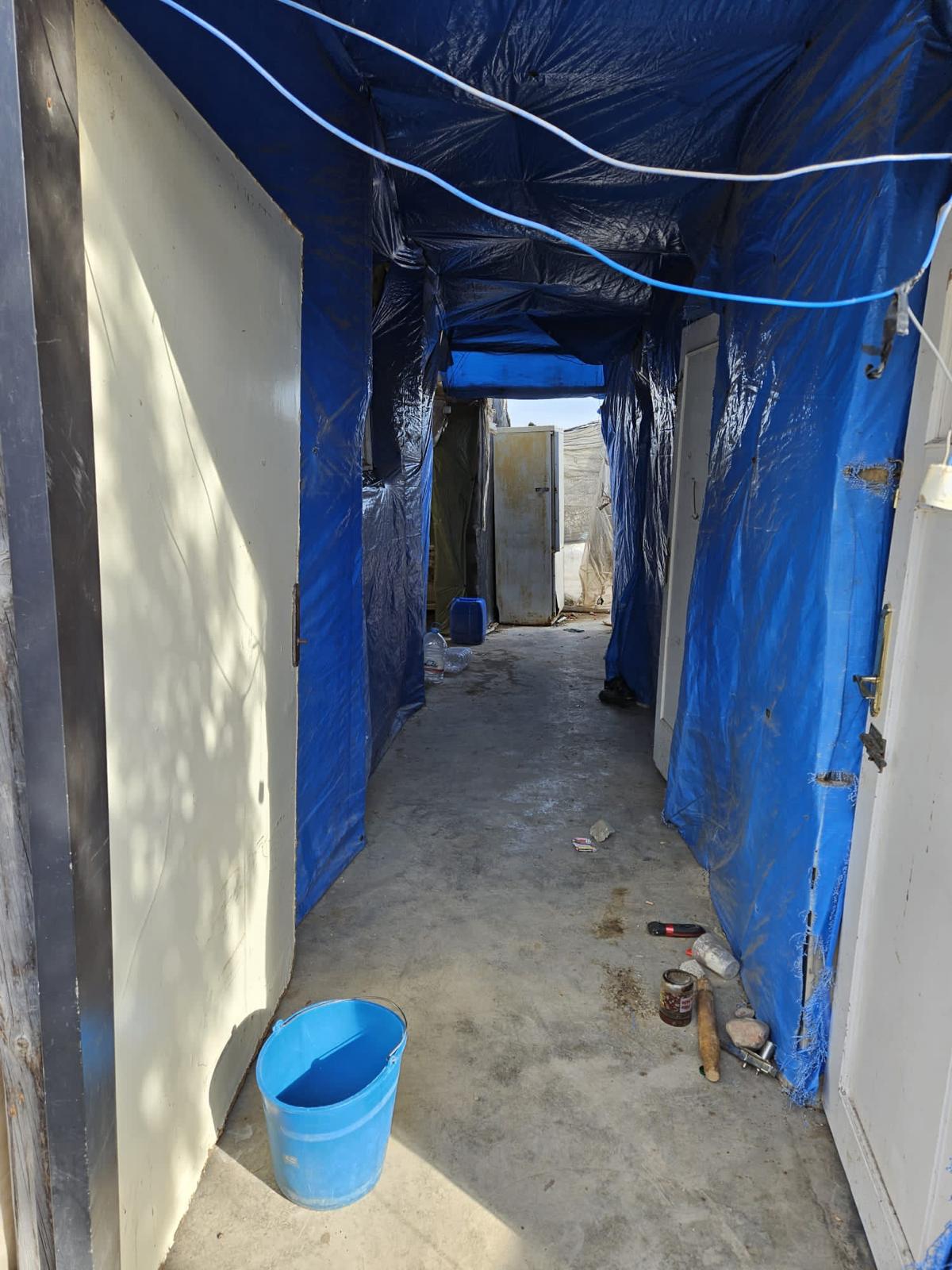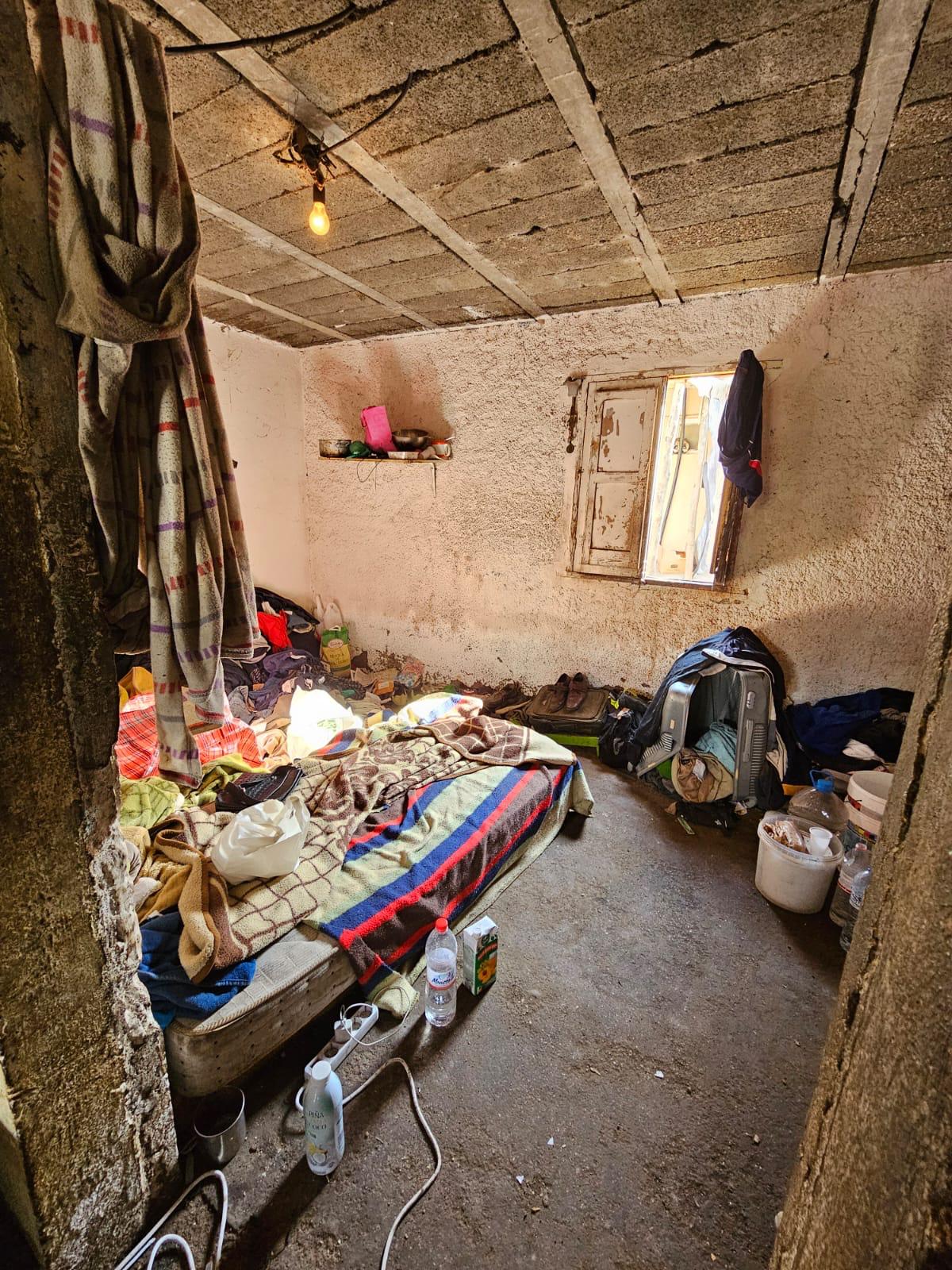Prioritising the places and people that need it the most
tuTECHÔ RURAL
{Empty}
The project "tuTECHÔ RURAL" aims to address homelessness, as well as depopulation in rural áreas of Spain. The mission is to integrate migrant families in a situation of homelessness, facilitating their roots and contributing to revitalize the economy of the agrarian regions of Spain.
Spain
National
It addresses urban-rural linkages
It refers to a physical transformation of the built environment (hard investment)
Yes
2025-01-01
No
No
Yes
Yes
Yes
As a representative of an organisation
The project "tuTECHÔ RURAL" aims to address homelessness, as well as depopulation in rural áreas of Spain. The mission is to integrate migrant families in a situation of homelessness, facilitating their roots and contributing to revitalize the economy of the agrarian regions of Spain.
The objective: fight against homelessness and depopulation, 40 families with minor children in a situation of homelessness who wish to settle in a rural environment will be identified. To support them, project offices will be opened in the participating municipalities and a system of continuous monitoring will be implemented to promote their integration and social and labor insertion. Community activities will also be developed in collaboration with the municipalities, strengthening integration between new residents and those already living in the localities.
tuTECHÔ wants to proive access to decent housing: the project manage empty or underutilized housing, evaluating its suitability for the beneficiary families. A social rental system will be created, managed by the municipalities, which will guarantee access to decent and affordable housing, promoting a stable and inclusive housing solution.
We promote social innovation for employability and independent living: in coordination with the municipalities and the consulting firm IFEDES+DS, employment opportunities will be identified and an action plan will be developed based on demographic and socioeconomic studies. The project office will offer employment and counseling services to support the creation of local businesses or cooperatives. In addition, training will be provided in traditional trades, clean technologies and entrepreneurship, with a special focus on women and older migrants. Partnerships will be established with local employers, agricultural cooperatives, care companies and rural tourism associations to promote employment among participating families.
The objective: fight against homelessness and depopulation, 40 families with minor children in a situation of homelessness who wish to settle in a rural environment will be identified. To support them, project offices will be opened in the participating municipalities and a system of continuous monitoring will be implemented to promote their integration and social and labor insertion. Community activities will also be developed in collaboration with the municipalities, strengthening integration between new residents and those already living in the localities.
tuTECHÔ wants to proive access to decent housing: the project manage empty or underutilized housing, evaluating its suitability for the beneficiary families. A social rental system will be created, managed by the municipalities, which will guarantee access to decent and affordable housing, promoting a stable and inclusive housing solution.
We promote social innovation for employability and independent living: in coordination with the municipalities and the consulting firm IFEDES+DS, employment opportunities will be identified and an action plan will be developed based on demographic and socioeconomic studies. The project office will offer employment and counseling services to support the creation of local businesses or cooperatives. In addition, training will be provided in traditional trades, clean technologies and entrepreneurship, with a special focus on women and older migrants. Partnerships will be established with local employers, agricultural cooperatives, care companies and rural tourism associations to promote employment among participating families.
Housing
Impact
Inclusion
Sustainability
Alliances
Housing located in the villages of rural Spain where the project is to be expanded often requires prior investment in repairs. For tuTECHÔ it is a priority to invest in the energy efficiency of the social housing portfolio, because in addition to being a social enterprise B Corp committed to respecting the environment, energy savings in supplies is key to enable a recovery of the domestic economy of the tenants. These vulnerable families have gone through long periods without income, so it is of vital importance to recover savings, so any reduction in their monthly consumption expenditure has a great impact on their economic-social reintegration.
tuTECHÔ has a collaboration agreement with the Spanish energy company “Fundación Naturgy” for the systematic change of boilers, windows and other architectural elements that can lead to energy savings in the real estate portfolio. In addition, the tuTECHÔ Foundation has items earmarked for the financing of energy-saving renovations within its three main objectives. In the rural áreas of Spain, temperatures are very low, so it`s crucial to accommodate the building.
tuTECHÔ has a collaboration agreement with the Spanish energy company “Fundación Naturgy” for the systematic change of boilers, windows and other architectural elements that can lead to energy savings in the real estate portfolio. In addition, the tuTECHÔ Foundation has items earmarked for the financing of energy-saving renovations within its three main objectives. In the rural áreas of Spain, temperatures are very low, so it`s crucial to accommodate the building.
For the tuTECHÔ RURAL project, collaboration with local municipalities has been the essential piece of the puzzle. Based on the pilot test carried out in Paredes de Nava, a town of 1,900 inhabitants in the region of Palencia, the traceability of the reintegration process of homeless people with professional accompaniment has been guaranteed at all times, collaborating with local public administrations. In this way, a correct integration of the people has been achieved, respecting the local population and seeking the correct coexistence between the parties. The experience has been a success, incorporating 29 migrants and 7 families in 7 houses in the village, who report to be very happy with the opportunity found.
The follow-up and evolution of the success of the project is quantified thanks to a strict measurement of the impact, thanks to the report of the public social entities that accompany the homeless. It is the people who are most interested in having a fluid communication to revitalize their economy, recover their schools with children and reverse the migratory flow of young people who leave the depressed areas to look for opportunities in the already crowded Spanish cities. Thanks to this easy communication and understanding, we can protect the cultural legacy of the people and protect the environment in which they live by finding new incentives.
The follow-up and evolution of the success of the project is quantified thanks to a strict measurement of the impact, thanks to the report of the public social entities that accompany the homeless. It is the people who are most interested in having a fluid communication to revitalize their economy, recover their schools with children and reverse the migratory flow of young people who leave the depressed areas to look for opportunities in the already crowded Spanish cities. Thanks to this easy communication and understanding, we can protect the cultural legacy of the people and protect the environment in which they live by finding new incentives.
The central element of the project is the interplay between the social enterprise tuTECHÔ and the impact philanthropy foundation. Both complement each other, allowing a sustainable model to offer social entities that accompany homeless profiles a real and effective help in the main obstacle of reintegration in Spain: the lack of housing. tuTECHÔ buys to fully accommodate the housing to the need of the profiles, making the appropriate works of accessibility, and from the Foundation is complemented by philanthropy to further lower the price of housing, making accessible for anyone to enter the apartment. It is from this housing stability that professional support is provided to enable social and economic reintegration. In 3 years, 1,672 people have passed through our apartments and 302 people have achieved independence, no longer needing the support of a social entity. The project is present in 12 cities in Spain and this 2025 is focused on rural Spain as a sustainable and real solution to so much need.
In tuTECHÔ RURAL, citizen participation has been very clear: the village has participated in the acceptance and inclusion of migrant families, allowing to partially reactivate their economies: for example, keeping open the bar, leisure and cultural center of many elderly people, who otherwise, and in the absence of a network of friends or family, would end up locking themselves in their homes in the absence of a common place where to make social relations. The local town hall has been deeply involved to give an answer to this need, involving all the neighbors.
The project tuTECHÔ RURAL engaged stakeholders at local, regional, national, and European levels to ensure a comprehensive and effective approach to tackling homelessness among migrants and rural depopulation.
At the local level, the municipalities of Paredes de Nava and Carrión de los Condes played a key role in facilitating housing solutions through social rental schemes, supporting employment initiatives, and providing community spaces. Local employers, agricultural cooperatives, and social enterprises collaborated to create job opportunities and promote rural entrepreneurship.
At the regional level, the Diputación de Palencia complemented the project’s objectives with demographic and rural development programs, ensuring alignment with broader strategies to repopulate rural areas and improve local services.
At the national level, the project aligned with Spain’s National Strategy on Homelessness and the State Housing Plan 2022-2025, leveraging public policies to secure sustainable housing solutions. It also received support from the Ministry for Ecological Transition and Demographic Challenge (MITECO), which funds innovative territorial transformation projects in depopulated areas.
At the European level, the project contributes to the EU’s Cohesion Policy, which aims to reduce socio-economic disparities, focusing on social inclusion and employment. By integrating European best practices and leveraging funding opportunities, the project enhances its scalability and sustainability.
The added value of this multi-level engagement lies in the synergy created between public institutions, NGOs, Fundación TuTECHÔ and private actors. This ensures a holistic intervention, providing vulnerable families not just with housing but also with employment, community support, and long-term integration into rural society.
At the local level, the municipalities of Paredes de Nava and Carrión de los Condes played a key role in facilitating housing solutions through social rental schemes, supporting employment initiatives, and providing community spaces. Local employers, agricultural cooperatives, and social enterprises collaborated to create job opportunities and promote rural entrepreneurship.
At the regional level, the Diputación de Palencia complemented the project’s objectives with demographic and rural development programs, ensuring alignment with broader strategies to repopulate rural areas and improve local services.
At the national level, the project aligned with Spain’s National Strategy on Homelessness and the State Housing Plan 2022-2025, leveraging public policies to secure sustainable housing solutions. It also received support from the Ministry for Ecological Transition and Demographic Challenge (MITECO), which funds innovative territorial transformation projects in depopulated areas.
At the European level, the project contributes to the EU’s Cohesion Policy, which aims to reduce socio-economic disparities, focusing on social inclusion and employment. By integrating European best practices and leveraging funding opportunities, the project enhances its scalability and sustainability.
The added value of this multi-level engagement lies in the synergy created between public institutions, NGOs, Fundación TuTECHÔ and private actors. This ensures a holistic intervention, providing vulnerable families not just with housing but also with employment, community support, and long-term integration into rural society.
tuTECHÔ RURAL is the perfect example of public-private cooperation, of alliance between impact investment and philanthropy, of collaboration between companies and the third sector. The City Council of Paredes de Navarra, showed its commitment from the initial design of the project, in its execution and it is demonstrated in the evaluation report 6 months later. The agents have interacted providing the knowledge of what they knew best: the collaborating companies of the tuTECHÔ network have provided their excellent professional management free of charge, the city councils the local knowledge of the area for the implementation, tuTECHÔ Hogar (the social enterprise) the knowledge on the management of the properties and the tuTECHÔ Foundation the social knowledge to select and refer the tenant families.
The main innovation of the project is the methodology that seeks to be economically sustainable and, therefore, scalable, to address the dimensions of a problem that requires large capital investment. The innovative approach is also based on the vital importance of partnerships: 30 companies support the project on a pro bono basis, without receiving any profit for their management. In this way, we are able to offer rents 30% below market by buying the homes at market price, as our cost structure is very light. By connecting their corporate social reality with the management of the project, they have become part of the project itself, which has led to other philanthropic projects channeled through the tuTECHÔ Foundation: material aid, economic funds, volunteers, free professional services or help in kind.
Also, one of the essential points for the success of the project has been the networking. We currently collaborate with 70 social entities to which we offer affordable housing. The work close to the real needs of the entity, connecting in this great ecosystem the actors involved (investors, companies, NGOs, philanthropists, public administration) is what has managed to build a solid trust between the parties to work together against homelessness.
Also, one of the essential points for the success of the project has been the networking. We currently collaborate with 70 social entities to which we offer affordable housing. The work close to the real needs of the entity, connecting in this great ecosystem the actors involved (investors, companies, NGOs, philanthropists, public administration) is what has managed to build a solid trust between the parties to work together against homelessness.
Continuous Monitoring and Data Collection: Fundación tuTECHÔ and Talento58, in collaboration with the municipalities, will implement a periodic data collection system to record the progress of beneficiaries in key aspects such as social integration, housing stability and economic development. Pre-defined indicators will be used to ensure uniform and objective measurement.
Quarterly Impact Assessment and Analysis: Each quarter, the evaluation team will prepare an impact report summarizing the progress made, challenges and results achieved compared to the initial objectives. This analysis will include qualitative and quantitative measurements for a complete understanding of the project's impact on rural communities.
Review Meetings and Strategic Adjustments: based on the data collected and analyzed, review meetings will be held with all stakeholders to assess the need for strategic adjustments. These meetings will facilitate the adaptation of actions to optimize results and ensure alignment with the objectives of social inclusion and development.
Documentation and Transfer of Best Practices: at the end of each project phase, lessons learned and successful practices will be documented. These documents will serve as transfer tools for other similar projects and will help promote the scalability of the model, attracting impact capital and replicating success in other contexts.
Dissemination of Results and Attraction of Impact Capital: the methodology contemplates the creation of public reports and participation in dissemination events to showcase the project's achievements and impact. The visibility of the results will help attract additional impact capital, ensuring the sustainability and expansion of the model.
Quarterly Impact Assessment and Analysis: Each quarter, the evaluation team will prepare an impact report summarizing the progress made, challenges and results achieved compared to the initial objectives. This analysis will include qualitative and quantitative measurements for a complete understanding of the project's impact on rural communities.
Review Meetings and Strategic Adjustments: based on the data collected and analyzed, review meetings will be held with all stakeholders to assess the need for strategic adjustments. These meetings will facilitate the adaptation of actions to optimize results and ensure alignment with the objectives of social inclusion and development.
Documentation and Transfer of Best Practices: at the end of each project phase, lessons learned and successful practices will be documented. These documents will serve as transfer tools for other similar projects and will help promote the scalability of the model, attracting impact capital and replicating success in other contexts.
Dissemination of Results and Attraction of Impact Capital: the methodology contemplates the creation of public reports and participation in dissemination events to showcase the project's achievements and impact. The visibility of the results will help attract additional impact capital, ensuring the sustainability and expansion of the model.
tuTECHÔ is based on the scheme of housing plus professional accompaniment of a social entity in order to promote the full integration of the most vulnerable profiles of Spanish society. With 362 social housing units in its portfolio, the tuTECHÔ methodology has 5 requirements.
1- That the apartments serve to dignify: the management of the apartment is delegated to the social entity, but first it has to pass the necessary filters to ensure that in the apartment will live the established number of people and that it will be done in good conditions.
2- Professional accompaniment: the social entity must have an insertion itinerary for the individuals, demonstrating that they will support and help them in their process. There must always be someone assigned to the apartment to accompany them professionally.
3- The social entity is responsible for the management: each NGO knows how many people should occupy the apartment, with what rotation and project times and how the insertion itinerary should be. tuTECHÔ trusts in the good criteria and diversity of methodologies, as long as information is shared and there is transparency.
4- Impact measurement: it is of vital importance to be able to raise the capital and continue buying apartments, scaling the project and having more scope of support, to meause the data of the social impact the capital is generating. The NGOs are responsable to share the data, working together with tuTECHÔ to implement new metrics.
5- The contract is made with the social entity, never with an individual: so that the NGO is always responsible for managing the apartment and is the institution in charge of reporting the information, to ensure its proper functioning, to provide support, etc.
This easy methodoly creates an organization chart of responsibilities in the process to facilitate and speed up decision making, involving all the agents involved in the reintegration process and thus promoting networking among social entities.
1- That the apartments serve to dignify: the management of the apartment is delegated to the social entity, but first it has to pass the necessary filters to ensure that in the apartment will live the established number of people and that it will be done in good conditions.
2- Professional accompaniment: the social entity must have an insertion itinerary for the individuals, demonstrating that they will support and help them in their process. There must always be someone assigned to the apartment to accompany them professionally.
3- The social entity is responsible for the management: each NGO knows how many people should occupy the apartment, with what rotation and project times and how the insertion itinerary should be. tuTECHÔ trusts in the good criteria and diversity of methodologies, as long as information is shared and there is transparency.
4- Impact measurement: it is of vital importance to be able to raise the capital and continue buying apartments, scaling the project and having more scope of support, to meause the data of the social impact the capital is generating. The NGOs are responsable to share the data, working together with tuTECHÔ to implement new metrics.
5- The contract is made with the social entity, never with an individual: so that the NGO is always responsible for managing the apartment and is the institution in charge of reporting the information, to ensure its proper functioning, to provide support, etc.
This easy methodoly creates an organization chart of responsibilities in the process to facilitate and speed up decision making, involving all the agents involved in the reintegration process and thus promoting networking among social entities.
At tuTECHÔ we always say that great challenges require great partnerships. As the visionary investor Ronald Cohen says, the future of the global economy will be an economy of social impact. An economy in which we can quantify the profitability-risk-social impact trinomial. The sooner we accelerate the standardization of metrics for measuring social impact in the financial markets, the easier it will be to awaken investor confidence in humanist projects that seek to provide solutions to social challenges. Europe has a major role to play in this transition.
To achieve this, building alliances is essential, and tuTECHÔ shows in a tangible way how to address challenges such as the depopulation suffered by many areas of Europe, giving a coordinated response to homelessness and migrants seeking opportunities in our land, coordinating supply and demand to avoid gaps. The example of tuTECHÔ RURAL can be easily exported to many member countries of the Union and can be taken as a precedent in the methodology for other social causes.
To achieve this, building alliances is essential, and tuTECHÔ shows in a tangible way how to address challenges such as the depopulation suffered by many areas of Europe, giving a coordinated response to homelessness and migrants seeking opportunities in our land, coordinating supply and demand to avoid gaps. The example of tuTECHÔ RURAL can be easily exported to many member countries of the Union and can be taken as a precedent in the methodology for other social causes.
The Paredes de Nava example shows very encouraging results, although on a reduced scale, since it is a pilot test started 6 months ago. Seven homes have been acquired for seven families, a total of 29 migrants with nine children who have been enrolled in school, thus avoiding the closure of a public school due to lack of students. The reception in the region of these migrants has been very good, as there has always been a pedagogical work of the institutions, involving them in cultural activities and normalizing the arrival of new neighbors, who have allowed not to close.
tuTECHÔ is already in negotiations with more villages in depopulated areas and by the year 2025 it is expected to be able to refer 400 families as direct beneficiaries and impact 4,000 people indirectly. The calculation of both figures comes from the extrapolation of the sample in Paredes de Nava with respect to the investment estimated by tuTECHÔ, while the indirect people is due to the ratio 1-10 (each person derived impacts on 10 people in the community by maintaining the minimum business and public services that would be lost by not having insured population, as the population of the area is very old).
tuTECHÔ is already in negotiations with more villages in depopulated areas and by the year 2025 it is expected to be able to refer 400 families as direct beneficiaries and impact 4,000 people indirectly. The calculation of both figures comes from the extrapolation of the sample in Paredes de Nava with respect to the investment estimated by tuTECHÔ, while the indirect people is due to the ratio 1-10 (each person derived impacts on 10 people in the community by maintaining the minimum business and public services that would be lost by not having insured population, as the population of the area is very old).


